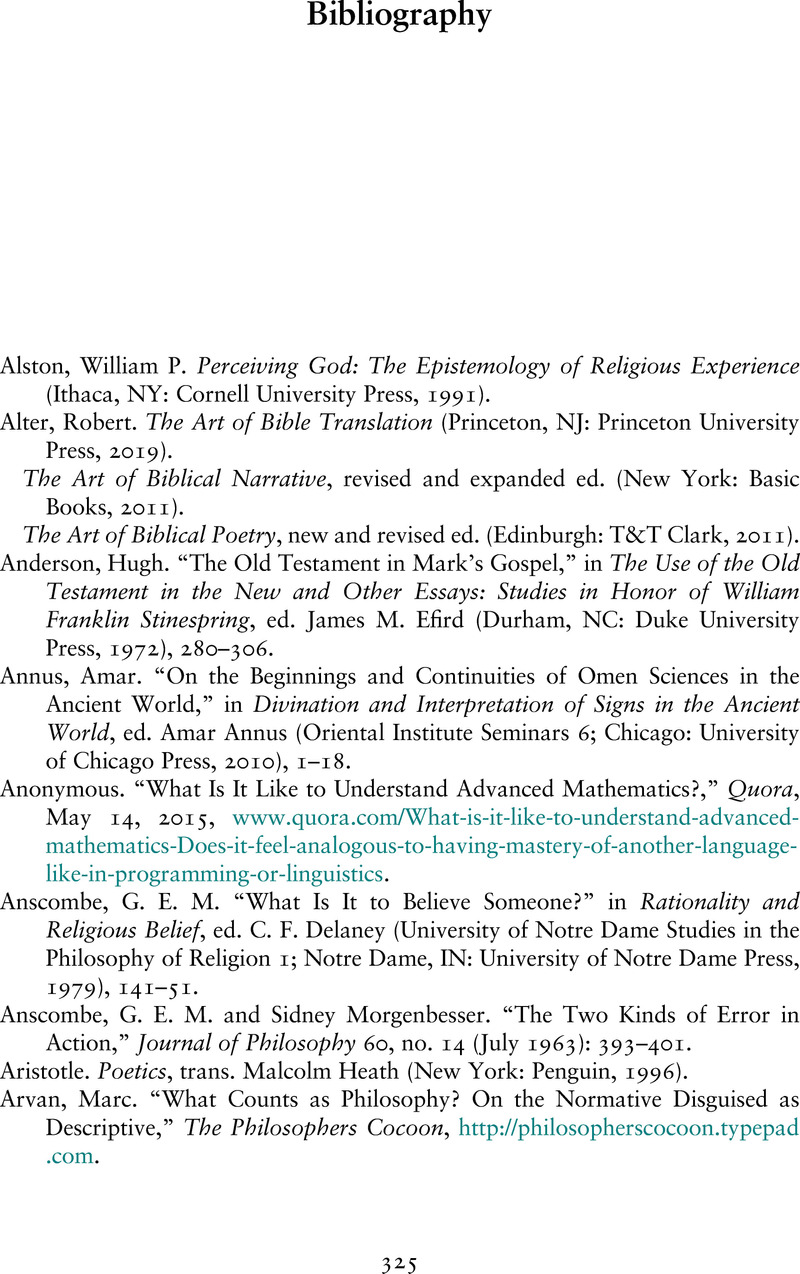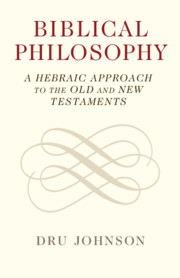Book contents
- Biblical Philosophy
- Biblical Philosophy
- Copyright page
- Dedication
- Contents
- Figures
- Tables
- Acknowledgments
- A Case for Retrieving Hebraic Philosophy
- Part I Philosophical Styles
- Part II Hebraic Philosophy
- Part III Persistence in Hellenistic Judaism
- Part IV Prototypes of Hebraic Philosophical Arguments
- Ending with a Beginning
- Bibliography
- Index
- References
Bibliography
Published online by Cambridge University Press: 13 April 2021
- Biblical Philosophy
- Biblical Philosophy
- Copyright page
- Dedication
- Contents
- Figures
- Tables
- Acknowledgments
- A Case for Retrieving Hebraic Philosophy
- Part I Philosophical Styles
- Part II Hebraic Philosophy
- Part III Persistence in Hellenistic Judaism
- Part IV Prototypes of Hebraic Philosophical Arguments
- Ending with a Beginning
- Bibliography
- Index
- References
Summary

- Type
- Chapter
- Information
- Biblical PhilosophyA Hebraic Approach to the Old and New Testaments, pp. 325 - 340Publisher: Cambridge University PressPrint publication year: 2021

